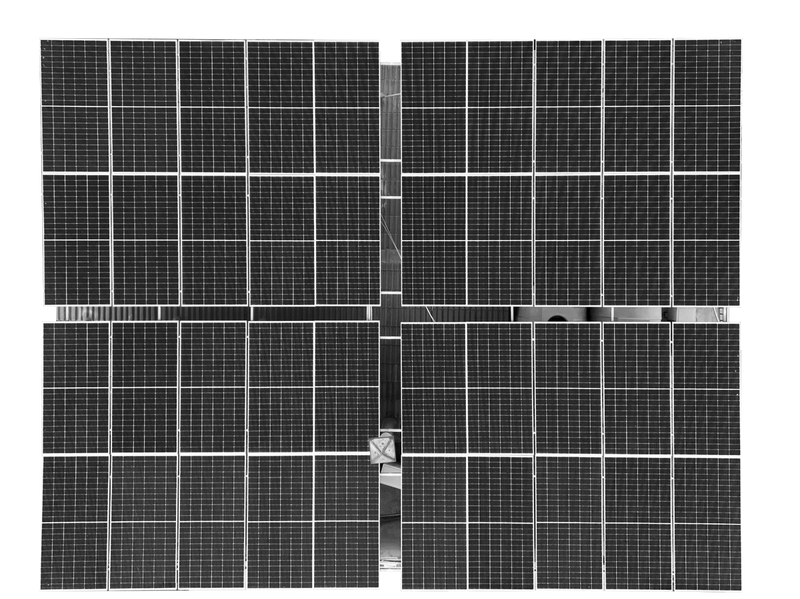“Power Shifts” is a photographic installation that explores the material expressions of Lebanon’s economic collapse through aerial imagery of Beirut. The work centres on the proliferation of solar panels on the city’s rooftops, engaging in critical discourse on the intricate interplay between the built environment, energy systems, and societal dynamics.
This installation is a development from Dia Mrad’s earlier project “Utilities”, which visually catalogued the economic crisis through the three infrastructural dimensions most affected — the electricity grid, water supply, and the banking sector — through documentation of solar panels, water tanks, and ATMs.
In “Power Shifts”, the focus is condensed to solar panels, devices that Lebanon’s residents have resorted to using due to the collapsed energy grid. An accumulation of photographs placed horizontally on pedestals simulate an aerial perspective of the city, prompting consideration of the tangible expressions of the crisis, and the role of design, architecture, and collective action in seeking solutions to urgent socio-economic challenges. By presenting these solar panels as contemporary artefacts, the exhibit challenges the conventional perception of objects as mere illustrations of socio-economic phenomena. Instead, it casts them as embodiments of the condition itself.
Through this lens of materiality, the work invites viewers to contemplate not just the visual impact of the economic collapse on an urban cityscape — but also the profound impact on the lives of its inhabitants. It transcends surface-level imagery, unravelling a nuanced, timely narrative that intertwines the built environment, severe economic conditions, and the human experience.
